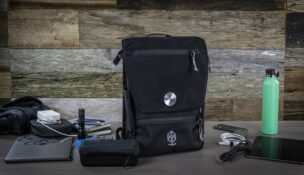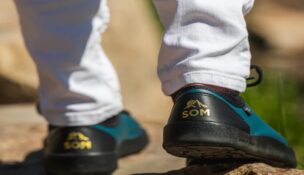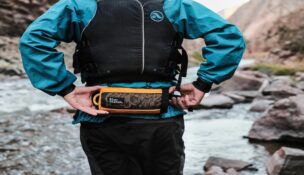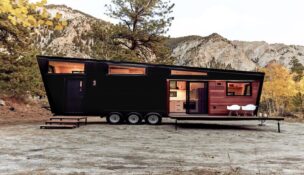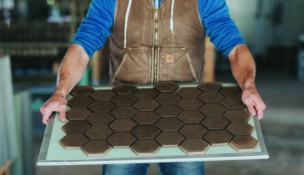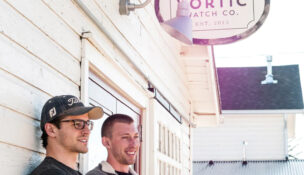Outdoor companies make do on shifting shore of manufacturing
Outdoor Industries Report: To offshore or not to offshore?
Eric Peterson //April 24, 2020//
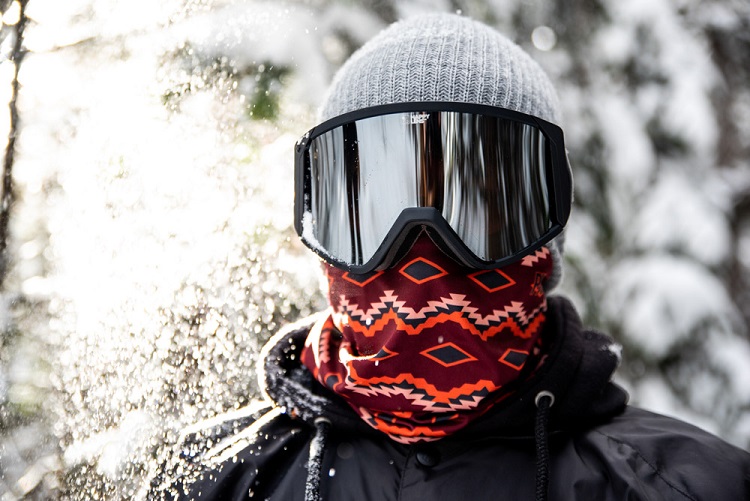

Outdoor companies make do on shifting shore of manufacturing
Outdoor Industries Report: To offshore or not to offshore?
Eric Peterson //April 24, 2020//
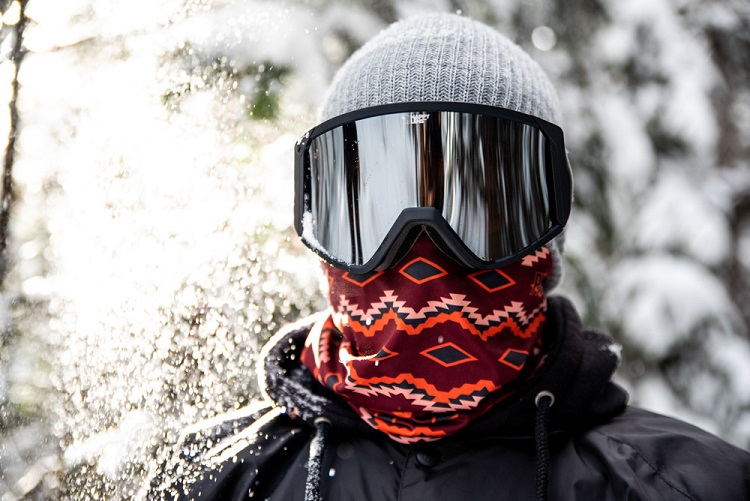
Phunkshun Wear’s ski-centric apparel is made in Denver, cutting turnaround times and enabling the company to react faster to trend changes.
To offshore or not to offshore? For some outdoor gearmakers, it’s not even a question.
Take Oveja Negra Bikepacking in Salida. Lane Willson launched the specialized bag-maker with her husband, Monty, in 2012.
The decision to manufacture in Colorado was purely pragmatic at first, Lane says. Now she wouldn’t have it any other way. “I need to see every bag that comes off our line,” she says.
Slowly but surely, the company’s domestic competitors moved bike pack production to other countries. “We stand in this class on our own,” she says. “We’re Oveja Negra — we’re the black sheep.”
The downside? “It’s really, really freaking expensive to manufacture in the U.S.,” says Willson, whose company pays its 16 employees up to $30 an hour.
While jobs in Colorado pay considerably more than jobs in Southeast Asia, local employees are a big selling point these days. “In a recent discussion with Colorado outdoor equipment retailers and distributors, it was made clear that this was a strong consideration for consumers,” says Michelle Hadwiger, director of global business development at the Colorado Office of Economic Development and International Trade (OEDIT).
It’s also about the market. Hadwiger notes that 90% of Coloradans participate in outdoor activities on a regular basis, and the state’s median household income is in the top 10 in the nation. “This means Colorado boasts a large market for outdoor gear and has the discretionary income to buy it,” she says. “This matters because outdoor enthusiasts demand quality gear to withstand the rigors of the activities and are willing to pay for the quality.”
Beyond state lines, the U.S. is the largest market for outdoor recreational gear, Hadwiger adds, and Colorado offers efficient access to both coasts.
Another advantage: design and testing logistics. “Colorado boasts all desired terrains and climates that outdoor gear producers covet for product testing: the mountains, rivers, deserts, and mesas,” Hadwiger says.
Phunkshun Wear makes a catalog of ski-centric apparel in Denver, and CEO Jason Badgley says the pros increasingly outweigh the cons. “We’re able to react to trend changes,” he says. A three- to nine-month turnaround from Asia is cut to 30 days by manufacturing in Colorado.
Phunkshun’s formula is working: Founded in 2011, the company has grown to 17 employees, moving from Summit County to Denver along the way for better access to labor and other logistics.
Badgley is quick to point out that the prices of lift tickets and ski-town lodging have skyrocketed, but the prices of commodities like neck gaiters have not. “It’s a tough pill for consumers to swallow to pay more for quality,” he says. “It has to be as good or better.”
With 12 employees and a custom manufacturing operation in Denver, Alchemy Bicycles has embraced a hybrid model by manufacturing some bikes in Asia since 2017.
“We decided to outsource our full-suspension mountain bike lines,” says Ryan Cannizzaro, Alchemy’s founder. “We’re set up here as a one-off facility where we build to order. We’re not set up to mass-produce in Colorado.”
Alchemy’s partner factories in Myanmar and Taiwan, however, are set up for high-volume manufacturing. “They understand how to produce a bicycle at high quantities,” Cannizzaro says. “Honestly, they are very good at it. They’re good at what they do and we’re good at what we do.”
It’s often difficult to hit the right price point with U.S.-made product, especially when labor is the biggest line item in a manufacturing budget. Cannizzaro advises a solid in-person vetting. “It’s all about who you choose as an overseas partner,” he says.

Despite the expense, Oveja Negra is committed to manufacturing bike packs at its Salida factory.
Manufacturing overseas causes headaches around forecasting, inventory and cash flow. “We’ve done pretty good on the forecasting,” he says. “If you’re not willing to manage that, I would say, ’Don’t manufacture in Asia.’”
But entire product categories simply don’t have the infrastructure and talent in the U.S. to compete with overseas industries. Huge manufacturing hubs in China have fostered supply chains to support most every outdoor industry sector for decades, leaving domestic manufacturers to build a business model around small-batch, premium-priced quality out of necessity.
Notes OEDIT’s Hadwiger: “The emphasis on quality and performance for these products typically means that they command higher prices than other textile and apparel products and likely go through more design and testing, and contain more advanced manufacturing processes, which likely means slightly higher pay.”
She points to the “multiplier effect” of outsourced jobs leading to less local income spent on goods and services in Colorado and the U.S. There’s a tradeoff, however: “Producing in a lower-cost market means that end consumers will likely pay a lower price at the register. The consumer is left to make a value decision based on quality and price.”
Colorado’s comparative cost advantage over California, Massachusetts and Washington helps mitigate cost issues, and there are intangibles (and plenty of cachet) that come with being made in Colorado. “Manufacturers, and companies in general, value a predictable business climate and that predictability is realized here in Colorado,” Hadwiger says, highlighting job training grants and state sales tax exemption as manufacturer-friendly policies.
Tariffs have emerged as another significant factor, she adds. “Outdoor recreational products were among those targeted in the last tranche of tariffs against Chinese imports. The fluid nature of global tariffs create manufacturing uncertainty for global manufacturing.”
Back at Oveja Negra’s bike pack factory in Salida, it’s a fun, funky and fulfilling place to work, co-founder Lane Willson says.
“Up until last year, every employee I had made more money than us,” she says. “But it’s totally worth it. I love coming to work.”






